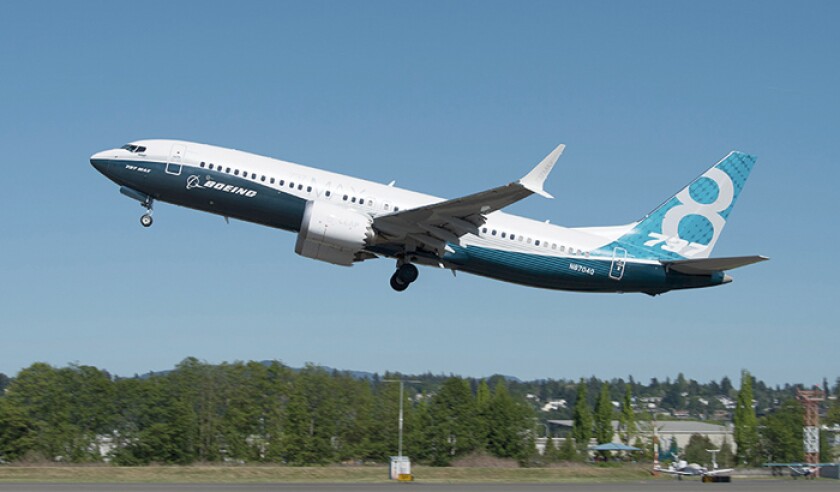Aviation specialist Global Aerospace (GA) leads the product liability policy likely to respond to claims arising from the grounding of over 100 Boeing 737 Max 8 aircraft by regulators in China and Indonesia and elsewhere, The Insurance Insider can...
Global Aerospace exposed on $500mn Boeing product cover

